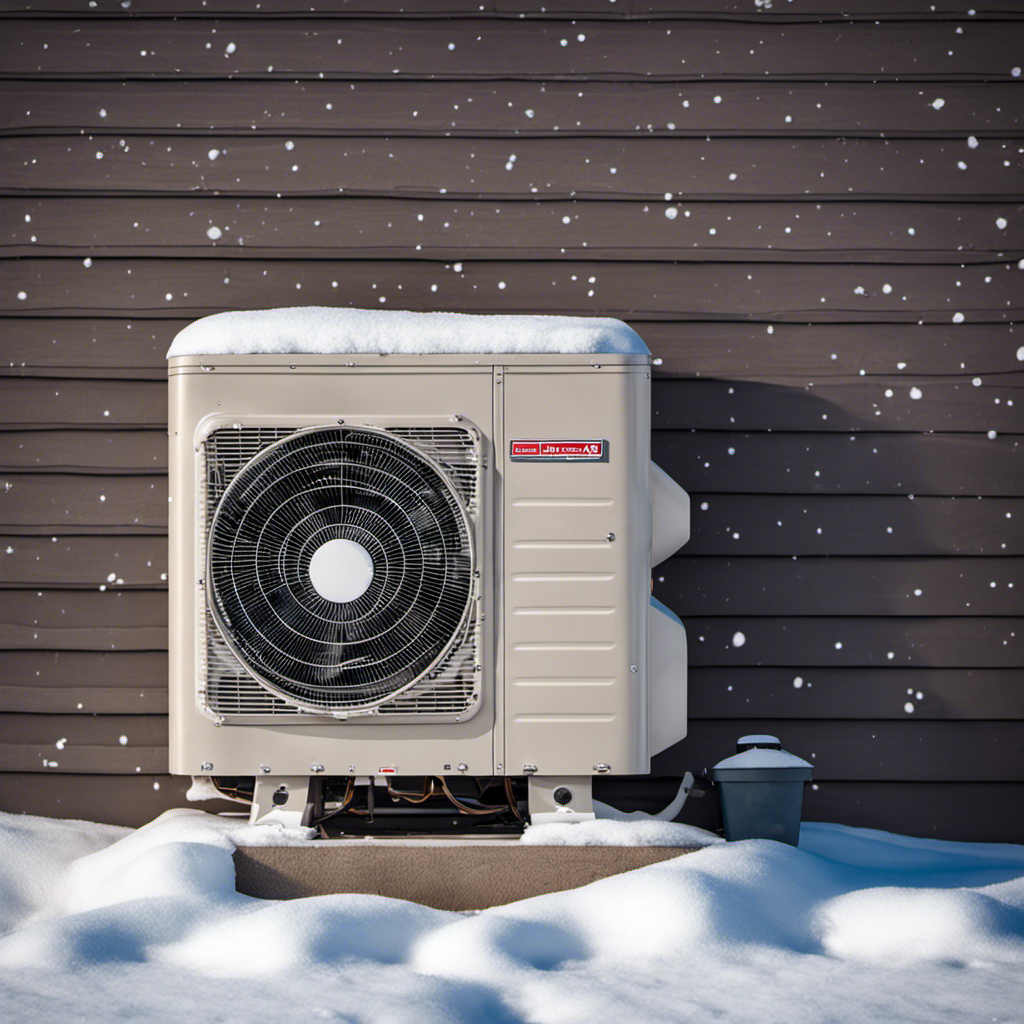In order to ensure the efficient performance and longevity of your AC unit, it is crucial to consider winterizing it.
Many individuals wonder if this step is necessary, and in this article, we will explore the importance of winterizing your AC.
Not only will we discuss the potential damage that can occur if it is not winterized, but we will also highlight the money-saving benefits that come with proper winterization.
Additionally, we will provide tips for effective winterization to serve you in maintaining your AC’s optimal performance.
Key Takeaways
- Winterizing your AC is important for maintaining efficiency and prolonging its lifespan.
- Not winterizing your AC can lead to potential damage and costly repairs, such as cracked pipes and mold growth.
- Winterizing your AC can save you money by preventing expensive repairs and damage, as well as promoting energy conservation.
- Tips for effective winterization include cleaning or replacing air filters, checking for and sealing leaks in ductwork, and covering the outdoor unit with a waterproof cover.
The Importance of Winterizing Your AC
Winterizing your AC is crucial for maintaining its efficiency and prolonging its lifespan. As professionals in the HVAC industry, we understand the importance of serving our customers by providing them with energy saving tips and addressing their maintenance requirements.
By winterizing your AC, you can ensure that it remains in optimal condition during the colder months when it is not in use. This process involves cleaning or replacing air filters, checking and sealing ductwork, and inspecting the unit for any signs of damage.
Potential Damage to Your AC if Not Winterized
Can your AC sustain damage if it is not winterized? The answer is yes. Failing to winterize your AC can lead to potential damage and costly repairs.
When winter arrives, the cold weather can cause water in your AC unit to freeze and expand, leading to cracked pipes, damaged coils, and even a broken compressor. These repairs can be expensive and could have been prevented with proper winterization.
Additionally, without winterization, your AC system may accumulate dust, debris, and moisture during the off-season, which can lead to mold growth and reduced air quality when you start using it again.
Money-Saving Benefits of Winterizing Your AC
One of the major money-saving benefits of winterizing your AC is that it helps to prevent costly repairs and damage. By taking the necessary steps to prepare your AC for the winter months, you can ensure that it remains in good working condition and avoid potential breakdowns that could result in expensive repairs.
Winterizing your AC involves implementing cost-effective strategies that not only help to extend the lifespan of your unit but also promote energy conservation. For example, by sealing any air leaks in your ductwork or insulation, you can prevent warm air from escaping and cold air from entering, reducing your energy consumption and lowering your utility bills.
Additionally, cleaning and maintaining your AC before winter can improve its efficiency and reduce the need for repairs, saving you money in the long run.
Tips for Effective Winterization of Your AC
Implementing proper maintenance techniques is essential for the effective winterization of your AC. By taking preventive measures and following a maintenance checklist, you can ensure that your AC remains in good condition during the winter months.
Firstly, make sure to clean or replace the air filters to improve indoor air quality and maximize energy efficiency.
Additionally, check for any leaks in the ductwork and seal them to prevent the loss of warm air.
It is also recommended to inspect and clean the outdoor unit, removing any debris or leaves that may have accumulated.
Furthermore, consider covering the outdoor unit with a waterproof cover to protect it from harsh weather conditions.
Lastly, schedule a professional HVAC maintenance visit to ensure that your AC is in optimal working condition for the next cooling season.
Ensuring Efficient Performance: Winterizing Your AC
To ensure optimal performance during the winter months, there are five essential steps you can take to effectively winterize your AC system.
- First, clean or replace the air filters to improve airflow and reduce strain on the system.
- Secondly, inspect and seal any ductwork to prevent air leaks and improve energy efficiency.
- Thirdly, clear the area around the outdoor unit from debris and leaves to maintain proper airflow.
Additionally, consider using energy-saving techniques such as:
- Installing a programmable thermostat.
- Using a cover for the outdoor unit.
Lastly, it is recommended to consider professional winterization services to ensure that your AC system is properly maintained and ready for the colder months ahead.
These steps will not only help in saving energy but will also extend the lifespan of your AC system.
Frequently Asked Questions
What Is the Average Cost of Winterizing an AC Unit?
The average cost of winterizing an AC unit can vary depending on factors such as the size of the unit and the specific services required. DIY options are available for those seeking to save on costs.
Can I Winterize My AC Unit Myself, or Do I Need to Hire a Professional?
Winterizing an AC unit can be done DIY, but hiring a professional offers several benefits such as expertise, ensuring proper maintenance, and avoiding potential damage. However, DIY winterizing tips can be helpful for those who prefer to do it themselves.
Is It Necessary to Cover My AC Unit During the Winter Months?
Using a cover for your AC unit during winter provides several benefits, such as protecting it from ice and snow, preventing debris buildup, and prolonging its lifespan. Additionally, regular maintenance like cleaning and checking for any issues is essential during the winter months.
How Often Should I Winterize My AC Unit?
To ensure optimal performance and longevity of your AC unit, it is important to winterize it annually. This entails tasks such as cleaning or changing filters, sealing gaps, and covering the unit to protect it from harsh weather conditions.
Are There Any Potential Risks or DrawbACks to Winterizing My AC Unit?
Potential risks and drawbacks associated with winterizing an AC unit include improper storage leading to damage, inadequate preparation leading to system inefficiency, and the potential for voiding warranty. It is important to follow manufacturer guidelines and seek professional assistance if needed.


